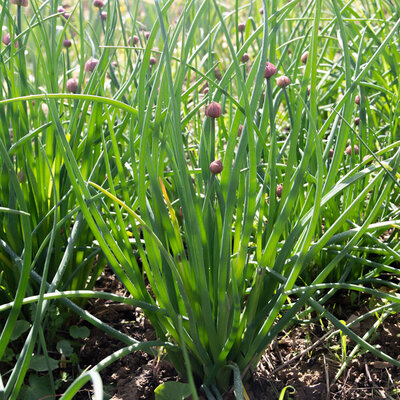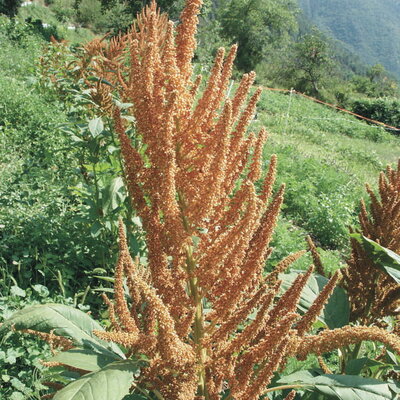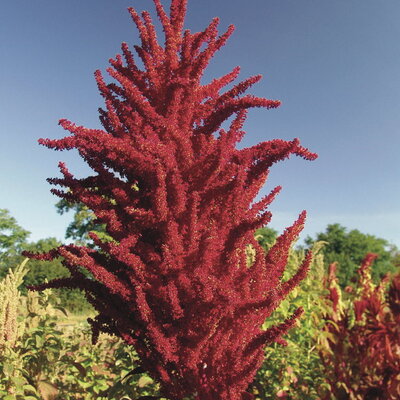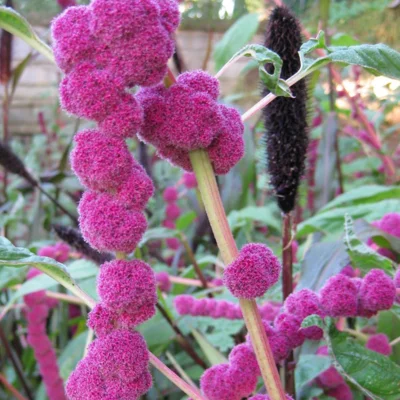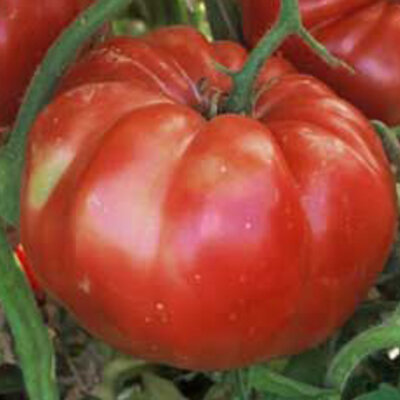
Russian Giant - Red Late Tomato
The Russian Giant red tomato is a variety with large, very ribbed, round fruits weighing 300 to 600 g. Sweet and juicy, these fleshy fruits offer a highly appreciated flavor.
Characteristics of the Russian Giant red tomato
The Russian Giant red tomato, Solanum lycopersicum, is a late variety native to Russia. It produces red, round, ribbed fruits weighing 300 to 600 g. Their firm, juicy, sweet flesh can be eaten raw, in carpaccio, or cooked, in sauce or stuffed.
When to plant Russian Giant red tomatoes?
Russian Giant red tomatoes can be sown from the end of February under glass until April, in pots or honeycombed trays, under a very bright shelter and at a temperature of between 16 and 20°C.
- Bury seeds 5-7 mm deep in potting soil;
- Water the seedlings, but do not over-water;
- Grow tomatoes indoors under a light source or in a nursery;
- Transplant into pots when the tomato reaches the stage of 2 to 4 true leaves. Bury the stem up to the two cotyledons to encourage root development and keep the plants protected from the cold;
- For 4 to 7 days before planting, take the tomato plants outside during the day to acclimatize them to outdoor conditions;
- As soon as the tomatoes are strong, transplant the whole clod into full sun after the last frosts. Plants intended for greenhouses can be planted when the temperature inside no longer falls below 10°C;
- Maintain a minimum distance of 50 cm between plants, burying the stem up to the first leaves;
- Water the tomato abundantly when planting in the vegetable garden.
How to care for a Russian red tomato plant?
Although vigorous, this Russian variety can be affected by diseases such as mildew (a fungus generally caused by excess humidity) and blight.s d'humidité) and apical necrosis (due to mineral deficiencies caused by irregular watering).
To avoid these problems, follow these tips:
- Water tomato plants regularly, but not excessively;
- Water at the end of the day, when the sun's rays are no longer to be feared;
- Avoid wetting foliage and flowers, and water at the foot of the plants;
- Mulch the soil to conserve moisture;
- Use organic preventive treatments: nettle purin, comfrey, etc.
What to grow with tomatoes
In the vegetable garden, tomatoes enjoy the company of cabbage, lettuce, cucumber, tagetes and basil, which repel pests and improve yields. However, we advise against combining potatoes and eggplants with tomato plants.
Do tomato plants need pruning?
This variety of tomato has an indeterminate growth habit. The stem will continue to elongate, forming numerous lateral branches, all of which produce flowers.
Pruning is not recommended. Pruning can cause open wounds to the plants and encourage the spread of disease. For staking, these bulky plants can be kept in cages or on ladders.
When to harvest Russian Giant red tomatoes?
Russian Giant red tomatoes are harvested from July to October. This highly productive crop regularly produces fruit well into the season. In the kitchen, its dense, sweet and juicy flesh can be enjoyed in sauces, purées, stuffed in the oven or simply raw in salads.
These products may also be of interest to you
in bucket
Sow in pots at a temperature of between 16 and 20°C, under a well-lit shelter, 5 weeks before planting. After the last frosts, transplant the whole clump into the ground at a minimum distance of 50 cm, burying the stem up to the first leaves. Water abundantly at the time of planting.
Solanaceae need light and heat to produce. In cool climates, it's best to grow them under cover and, depending on the soil, water them regularly.
February, March, April
July, August, September, October
in the ground, in the greenhouse
full sun
medium
all floor types
drained, rich, reheated
Solanum lycopersicum
late
From 300 to 600 g
35 seeds
ribbed
juicy
indeterminate
Red
regular
Russia



